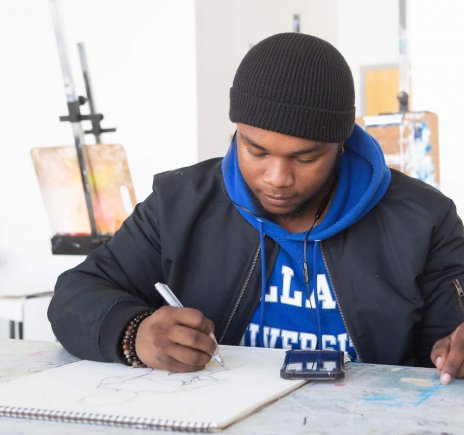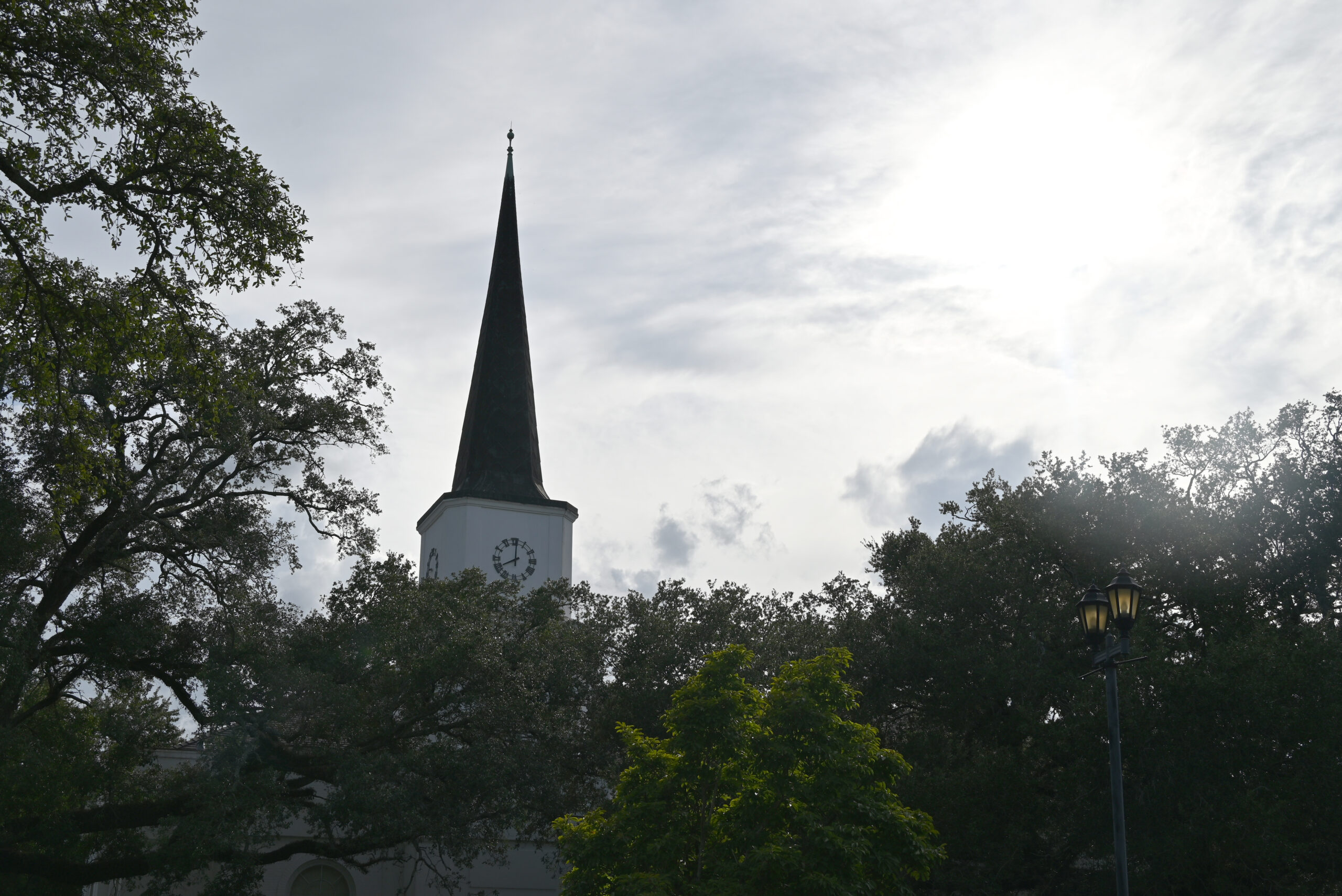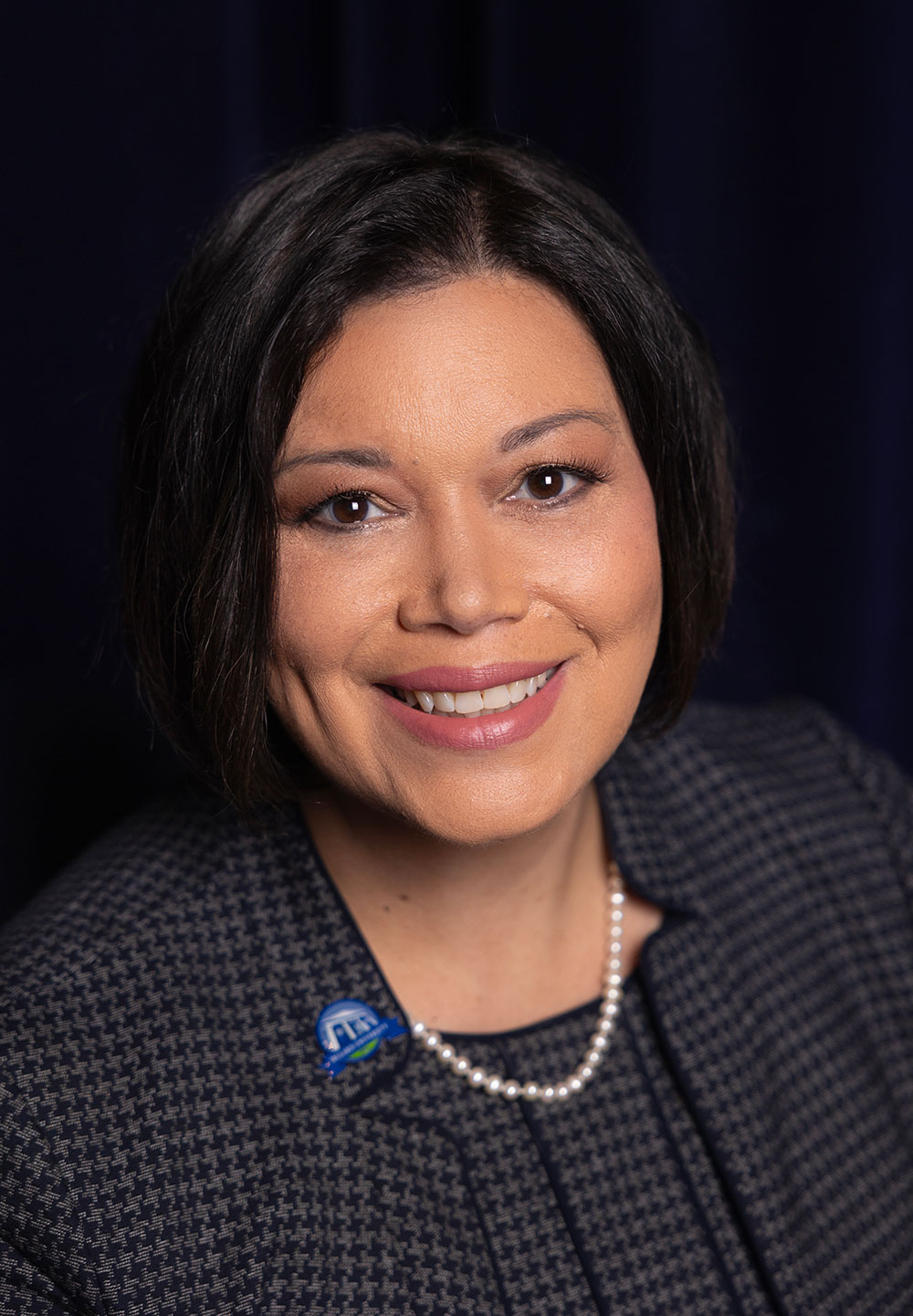NEW ORLEANS – On May 4, 2020, Dillard University alum Jericho Brown ‘98 won the 2020 Pulitzer Prize in Poetry for his collection “The Tradition.” The Pulitzer board deemed it “a collection of masterful lyrics that combine delicacy with historical urgency in their loving evocation of bodies vulnerable to hostility and violence.” Brown’s win followed the premature deaths of Breonna Taylor, an award-winning emergency room technician and Ahmaud Arbery, a former star student athlete.
When asked why winning the Pulitzer Prize was important, the Shreveport, Louisiana native shared: “I’m happy to bring this prize back home, and by that, I mean back to black folks, back to the South, back to Louisiana, and back to my alma mater, Dillard University. Dillard is where I first took creative writing workshops as classes toward my major, and it’s where I first began to envision a life for myself as a writer,” he said. “These are not easy times for any of us, but I’d like to believe that this prize in this particular instance can show that there is still possibility for us no matter how rough the terrain may seem. And I’m grateful to have gotten the education necessary to make it to this moment.”
To name a few, Brown follows the tradition of Dillard alumni who were also humanities students, such as Ruth Simmons ‘67, Garrett Morris ‘58, Ellis Marsalis Jr. ‘55 and Lisa Frazier Page ‘84. These alums have made extraordinary advancements and strides to showcase the African-American experience in its fullness. When asked what is the Dillard Humanities “it” factor, Cortheal Clark, chair of the School of Humanities said, “I do believe our ‘it factor’ is that a Dillard University Humanities education is a cohesive collection of experiences, each providing its own unique contribution to the enlightenment to humankind and its practitioners.”
The School of Humanities’ mission is to comprise “the branches of learning concerned with systems of thought based on the nature, dignity, interests, expressions, ideas and values of humankind…The study of the Humanities emphasizes creativity and critical thinking skills, necessary attributes in academe and also in the workplace.”
DILLARD UNIVERSITY THEATRE CELEBRATES 85 YEARS
The School of Humanities boasts several high-performing majors: English, film, mass communication, music (which proudly produces the legendary Dillard University Concert Choir) and visual arts with theatre arts serving as a major foundation. Dillard is the oldest HBCU degree granting theater program in the country. The theater program provides an extremely rigorous professional training program with a commitment to the aesthetics of Black theater.
It started when Randolph Edmonds, a playwright and educator was hired to develop Dillard’s speech and theater department in 1935. Edmonds’ achievements as a director, playwright, and educator won him widespread acceptance as the unofficial “Dean of Black Academic Theatre.”
Edmonds’ career as a playwright began in 1922 with the one-act folk play “Job Hunting,” for which he won honorable mention in Opportunity magazine’s drama competition. From 1922 to 1926, he produced a series of one-act plays examining the issues of the era. Among the most powerful was “A Merchant in Dixie” (1923), in which a White businessman and a Black member of the NAACP, once childhood friends, confront each other as adults. Randolph’s “Doom” was a one-act play that seemingly challenged the radical spirit behind the “New Negro” philosophy and championed the economic and racial philosophies of Booker T. Washington. In 1926, Crisis: A Record of the Darker Races magazine awarded Edmonds two honorable mentions in its drama competitions. The first was for his interracial drama “Illicit Love.” The second was for “Peter Stith,” which examined the increasing distance between the values of urban and rural African Americans in the 1920s. Edmonds had produced enough work in 1930 to publish a collection entitled “Shades and Shadow.” A second collection, “Six Plays for a Negro Theatre,” followed in 1934. “The Land of Cotton and Other Plays,” his third collection, was published in 1942.
Dillard Theatre now hosts two degree plans, Performance and Theatre Technology; and alumni have earned graduate degrees from such institutions as California Institute of the Arts, Julliard, New York University, Pace University and Carnegie Mellon University.
IN THEIR WORDS
To discuss the importance of the humanities, the Office of Communications and Marketing interviewed two Dillard Humanities alumni–Dr. Brenda Marie Osbey ‘78 and Jamal Sterling ‘99.
Dr. Brenda Marie Osbey is an award-winning poet, essayist, author and educator who was a Louisiana poet laureate from 2005 to 2007. In 1998, she won the American Book Award and a 2018 Emilia Galli Struppa Fellow of Virginia Humanities. Osbey has also taught at Brown University, the University of Virginia and Loyola University New Orleans.

Dillard University (DU): As an award-winning Dillard Humanities alumna, what does it say to you that Jericho Brown won a Pulitzer?
Dr. Brenda Marie Osbey (BMO): First of all, I send hearty congratulations to Jericho Brown on being awarded the Pulitzer, and wish him every continued success. What we’re witnessing right now is the greatest period of production, achievement, and recognition in the arts since Amiri Baraka’s founding of the Black Arts Movement in 1967, and the explosion of Black women’s writing ushered in by the publication of Toni Morrison’s “Bluest Eye” in 1970. And this time it isn’t only the United States, it’s worldwide. The U.S., Africa, the Caribbean, Latin America, Europe, Asia – wherever you find Black people – and I do mean capital B Black – we’re seeing unprecedented output and acclaim. And let’s be clear: even with the concerted 20 – 25 year push for STEM-focused education, our gains in the arts are at an all-time high. What would be the result if we were to begin now creating a stronger and more solid environment for education in the arts at every level? Suppose universities began investing substantial funding of programs, increasing faculty salaries and student scholarships, and finding new ways to support, promote, rebuild, and innovate arts and humanities curricula?
DU: How did Dillard inform your career path?
BMO: Being admitted to the University’s concurrent enrollment program allowed me to begin classes in eleventh grade, skip senior year, and enroll as an early-admissions undergrad. That early immersion in university life was admittance to a liberal arts and intellectual environment where creative work was strongly valued and supported. By the way, including New Orleans University and Straight College, I’m a fourth-generation product of this institution. So it’s fair to say that Dillard informed my career path long before my enrollment.
DU: Is there a Dillard professor (or professors) whose teaching stands out from your time at Dillard?
BMO: There were many. Many. The famed sociologist Daniel C. Thompson took a keen interest in the New Orleans elements in my writing and helped shape my early research focus in that area. He loaned me favorite books of his and we met weekly to discuss them, always veering into a wider range of topics. New Orleans and African religious and cultural histories were high on our list of favorites. Dean Thompson was a strong mentor without my ever taking a course with him.
French professor and advisor Susan Fitch (Spillman) urged me to declare a second major in French; encouraged me to return again to writing poetry in French; helped me prepare for the written and oral examinations for the CODOFIL study-abroad scholarship; and was responsible for my first public poetry reading. Among several independent study courses of mine that she approved was one that focused on the Négritude poets. It was during that time that I composed “Homme Noir, Homme Nu,” a short lyric poem that I read for one of the University’s annual foreign languages festivals.
In the English department at that time were David Lambert, Henry Lacey and Barry Ivker. Lambert asked to see some of my work as soon as we met; and I got into the habit of slipping poems under his office door and then stopping in later to discuss them whenever he was available. Lacey was the hip professor who taught African American literature, with a strong emphasis on contemporary poetry. He worked to give us a sense of history and the arc of cultural movements shaping literature, emphasizing always the singular importance of jazz. He was tough, and those of us who did well in his classes formed a tight group, hanging about discussing poetry together, and then stopping in at his office to follow up, and also for mini music listening sessions. Much of my own teaching is strongly influenced by his approach.
Ivker was the professor who spent the most time reviewing and critiquing my poems. He read nearly everything I wrote; assigned me advanced readings in poetry, criticism, and history of the English language; taught me to be a stern critic of my own work; and emphasized both the value of editing and the power of the poetic line. It was he who showed work of mine to an editor and publisher who was on campus recruiting during senior year, which led to my first publications in literary journals as well my first book.
My time at Dillard is a series of narratives of early support, some of which are told in an essay on literary origins, “Writing Home,” as well in my Dillard 2011 Honors Convocation address on the value of recognizing our mentors and committing to mentor others, entitled “Glory and Honor.”
DU: Literature and the arts have always been extremely important to the African American experience. So, looking at the larger picture, how would you describe the presence of the humanities in Black America during your time at Dillard?
BMO: Well, that was 1974–’78, except for the ’76–’77 academic year, when I was studying in France. The Black Arts Movement had already peaked. Black student activists of two previous generations had founded the first Black Studies programs, as they were then called, at predominantly white colleges and universities across the country. HBCUs had, of course, long taught courses in African American and African history and literature. By this time, African American, Caribbean, Latin, and African artists, jazz composer-musicians, writers, thinkers, and activists were continually traveling to and from one another’s home countries. So, there was a great deal of intellectual and creative exchange and cross-fertilization. Readings, exhibitions, and performances of all kinds were being held at theatres, bookstores, parks, churches, and on college campuses across the nation. Black poetry and poets were everywhere. Looking back to track the developments and history of that era for a course I created many years ago called BAM! Black Arts Movement, it was surprisingly clear that we were already living and experiencing the proverbial beginning-of-the-end. Of course, we didn’t realize it then. It was simply the norm. Black poetry, music, art, and cultural concepts and expression of every kind, were still very much taking not only this country, but much of the world by storm.
DU: How would you describe Dillard Humanities during your time here?
BMO: The humanities program at Dillard in the mid-70s was a veritable hive of activity. Guest speakers, artists, and performers presented regularly in the Lyceum Series. The theatre here was well respected. Foremost in my personal experience are two things: a campus visit and reading by the poet Sterling Brown, and becoming part of a small group of students who co-founded a short-lived writing and performance group called Creations. We lived and studied and worked in an environment that challenged and supported us. And so the things that drove us, the things we wanted to do and to be all seemed within reach.
DU: On your journey as an educator, can you think of any student(s) who viewed poetry (specifically) as fluff but seemed transformed by the work they did in one of your classes? If so, can you describe the transformation?
BMO: Well, I’ve had countless students who were inexperienced in the study of poetry. And inexperienced readers of all ages typically assume that poetry is based entirely in feelings, emotional responses, and personal experiences. So, I see my job as providing necessary tools for study. Usually I begin with a single poem, asking different students to read the same poem aloud, prompting with questions, acting as a guide through related literary history and the socio-political changes from which literary move-ments develop. Rather than overwhelm readers at the outset with too much literary jargon, I add information on literary devices, technique, and critical language only as needed for the work under study. This opens a way for students to read that one poem from a growing knowledge base that empowers them to progress into critical reading. Giving a few basic and necessary tools empowers them to engage a body of knowledge and creative-intellectual practice that previously seemed opaque. Once they get it that very first time, there’s just no stopping them.

Jamal Sterling is an actor, voice over artist and educator based in Dallas. A native of Detroit, he teaches theater in the Dallas Independent School District where he was awarded the 2013 Teacher of the Year. Sterling has appeared in the television series “Prison Break,” “Chase” and “Dallas.” A member of Kitchen Dog Theater, he has appeared in several productions including “The Tulsa Race Riots,” “A Soldier’s Play,” “Fences” and “Jay Jackson vs. Jim Crow” among many others.
DU: As a native of Detroit, how did you learn about Dillard and what made you attend?
Jamal Sterling (JS): I learned about Dillard University while at Cass Technical High School from my amazing theater arts teacher Marilyn McCormick (who won a Tony award in 2016 for Excellence in Theater Education). I was very interested in going to a school for theater and I was excited to go to a program that specialized in Classic Black Theater. I was also very interested in going to school in New Orleans.
DU: Dillard Theatre productions drew a lot of attention in New Orleans in the 90s. What made them so good?
JS: Dr. Alex Marshall and Dr. Garey Hyatt set a high standard from the very first production, “Ms. Ever’s Boys.” There was no star system in our productions. One production you could have the lead and the next production you would be working lights. They built a strong community and expected us to maintain that community. They also recruited students who were not only talented but also very dedicated. Essentially, we were being taught how to be a professional company as students.
DU: As you reflect on your Dillard days, what stays with you as a thespian and an educator?
JS: Two things really stick with me from those foundational days. First, we were all instilled with a sense of legacy. We were taught about the Black theater and its importance to our culture.We cut our teeth on works created and performed by Paul Robeson, Ossie Davis, Ruby Dee, Alice Childress, Amiri Baraka and countless others. These are not household names to some but without these artists there would be no Sam Jackson, Viola Davis or Denzel Washington.
Second, I learned a real sense of community. Dillard University Theatre was my first theater family and that sense of family was vital to the quality of our work. We held each other accountable in rehearsal and on stage, and it showed in our performances. Every production I work on or class I teach, I make it a point to try to make a connection with everyone. Those connections are vital to a successful production.
DU: As a 2013 Dallas ISD Teacher of the Year, how do the humanities play a role in the way you educate students?
JS: I believe that the humanities helps make vital connections in student learning. The humanities really engages the critical thinking skills needed to push students’ limits. In my classroom, I strive to make students dig deeper into what they believe and why they believe it. For example, I read the play” A Raisin in the Sun” by Lorraine Hansberry with my 8th grade students and on its face, that seems like a very standard theater lesson. But, through that play we have conversations that touch on social studies, English, math and topics like religion, race, class and so much more. I watch students make direct connections between what is going on in their core classes and how it relates not only to our lesson but to their lives. The humanities should help make well rounded human beings.
The learn more about Dillard Humanities CLICK HERE.







